In 2020, JPMorgan Chase & Co. launched the New Skills ready network across six U.S. sites to improve student completion of high-quality career pathways with a focus on collaboration and equity. As a national partner in the New Skills ready network, Advance CTE strives to elevate the role of state capacity and resources in advancing project priorities and gain a unique perspective on promising practices to strengthen state-local partnerships across the country.
This blog series highlights innovative tools and initiatives produced across the six sites that advance the initiative’s four key priorities and serve as a guide for state leaders in their work to create cohesive, flexible and responsive career pathways.
Senior Policy Associate Haley Wing interviewed Rana Tarkenton and Therese Ivancovich of The Attainment Network. The Attainment Network connects partners and drives collaboration to build education-to-workforce systems that support every learner on their path to earning family-living wage employment and economic opportunities through education and skills training. This post highlights The Attainment Network’s contributions to the Denver site as well as their growing impact in the state of Colorado.
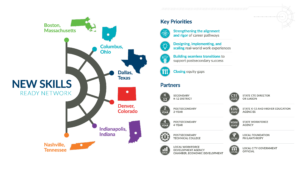
Background
The Attainment Network, formerly known as Denver Education Attainment Network (DEAN), was founded in 2014 as a direct response to persistent equity gaps in educational attainment and economic opportunity. The Attainment Network is transforming education-to-workforce systems, erasing persistent and pervasive equity gaps, expanding opportunities for learners and meeting the economic demands for a highly skilled and educated workforce.
The Network mobilizes K-12, postsecondary institutions, state agencies, local municipalities, nonprofit, business and learners to ignite and accelerate education-to-workforce systems change. The Network serves a crucial role in providing strategic consulting, technical assistance, funding and connection to ensure a prioritized and sustained focus on learner-centered, career-connected experiences that strengthen regional and state talent pipelines. The Attainment Network also serves as the site lead for the New Skills ready network Denver site and has supported development and movement toward implementation of high-quality career pathways for learners.
Vision for Success
 The Attainment Network envisions an innovative education-to-workforce system that develops a diverse, talented workforce for current and future jobs, meets economic demands and sustains thriving communities. As The Network pursues this vision, their measure of success encompasses key evaluation questions embedded in equitable outcomes for learners. This includes measuring the number of diverse learners completing high-value credentials and receiving opportunities for high-wage, in-demand careers.
The Attainment Network envisions an innovative education-to-workforce system that develops a diverse, talented workforce for current and future jobs, meets economic demands and sustains thriving communities. As The Network pursues this vision, their measure of success encompasses key evaluation questions embedded in equitable outcomes for learners. This includes measuring the number of diverse learners completing high-value credentials and receiving opportunities for high-wage, in-demand careers.
In support of their work to close equity gaps along career-connected pathways, The Attainment Network engages deeply with communities they serve. The team recognizes the importance and impact of learner and community voice. To that end, they have prioritized community engagement in the development of career-connected pathways, both within the New Skills work and beyond.
Unique Components of The Attainment Network
The team identified a need to provide high-level strategy, on-the-ground technical assistance and funding to support partners that are engaging in the education-to-workforce work. The team is especially well-equipped to leverage data, equity and collaboration to guide partners in informing policy and communications. When engaging with partners, The Attainment Network identifies and engages senior leadership and helps to set a shared vision for how multiple organizations work together. The organization also supports education and skills alignment by helping partners to identify the connecting points between education and skills training and how these components can be built into seamless programs of study and coordinated learner supports.
The Attainment Network is leaning strongly into the learner voice and ensuring that learners are remaining centered in the work. The organization has launched a side-by-side community of practice of learners, as well as their Pathways Leadership Community of Practice. The organization will continue to add more learners to this group over time and in the next few months will have five to seven learners participating in this group. The problems of practice are driven by the needs of learners that arise in the community of practice, and learners will provide their own contemplation and feedback that will then be shared to inform decisions around policies and how programs move forward.
Within their communities of practice, The Attainment Network engages multiple types of organizations, both formal and informal partners, to elevate best practices in career-connected pathways and to problem solve for barriers to learner success.
The Network prioritizes equity through their use of a data framework which also serves as an equity framework. The data framework was developed in collaboration with New Skills Denver partners and focuses specifically on learner subgroup populations and how those learners are progressing through pathways and into a career. These specific details allow the organization to target strategies and solutions to close equity gaps. This work is currently being used in the Denver site for the New Skills ready network initiative and in other communities in Colorado as well.
The Attainment Network is also elevating work-based learning as an accelerator to help learners on their career journey. The organization’s investments in data with intentionality around how they work with partners to build capacity and alignment has been instrumental in the team’s learnings. For example, The Network now requires data-sharing agreements as a funding condition for all partnerships.
New Skills ready network Impact

The success of the New Skills Denver partnership led to an opportunity to expand The Attainment Network’s impact beyond Denver. With its recent expansion to a statewide organization, The Attainment Network now has more resources to support the Denver New Skills ready network site because the organization has a statewide network and a larger footprint in the state of Colorado. The transition brings more focus to the New Skills site to further highlight important relationships and varied strategies the organization and its partners are leveraging in continuous development of high-quality career pathways for learners.
The site’s success has allowed The Attainment Network to refine their strategies and highlight the impact of the organization’s approach and pathway strategy to expand to other communities. The investment from JPMorgan Chase in the New Skills ready network initiative helps solidify the value-add with partners and scale the framework to support broader work in the state of Colorado. In the coming years, the organization will help the Denver site to expand their reach by lifting up the work that is being achieved and eliminating policy barriers to learner success.
Visions for the Future
Looking ahead to 2023, The Attainment Network is focusing on streamlining data collection and utilization, building models that can be successfully replicated and leveraging statewide collaboration opportunities to scale impact. The Network is focusing on connecting career pathways data to wage data in order to understand how education and skills training are contributing to the promise of family living wage employment. As the organization expands to a replicable model, a cornerstone of the work will be centering alignment between policy and practice. The transition to a statewide focus opens opportunities to cross-pollinate ideas from Denver to other communities.
Additionally, The Attainment Network is entering phase two of their Individual Career and Academic Plan (ICAP) pilot, which demonstrated the value of K-12 ICAP data to learners and advisors during learners’ transition to postsecondary. The pilot will now be named the Student Transitions pilot. In phase one, the pilot was well-received by partners and the organization learned the usefulness of the data and the impact on the postsecondary advising sessions with learners. In phase two, the focus will be on scalability, streamlining the data sharing process and developing a “pathways indicator” to be included in student records. The organization plans to include opportunities for counselor/advisor professional development to increase the impact of the pilot across K-12 and postsecondary institutions.
For more information about initiatives being pursued by Denver and the five other sites that are part of the New Skills ready network, view Advance CTE’s Year Two snapshots.
Haley Wing, Senior Policy Associate


 Introduction
Introduction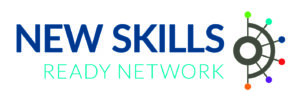 The first project I was assigned to involved the
The first project I was assigned to involved the 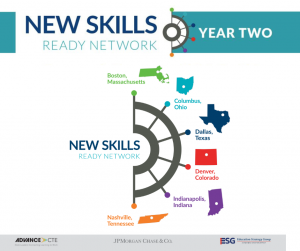 Today, Advance CTE and Education Strategy Group (ESG) released an annual report and site snapshots for year two of the
Today, Advance CTE and Education Strategy Group (ESG) released an annual report and site snapshots for year two of the 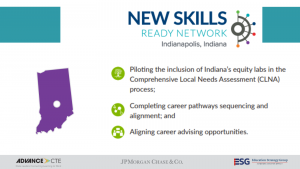
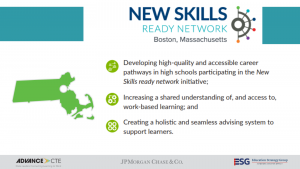 Boston, Massachusetts,
Boston, Massachusetts, 
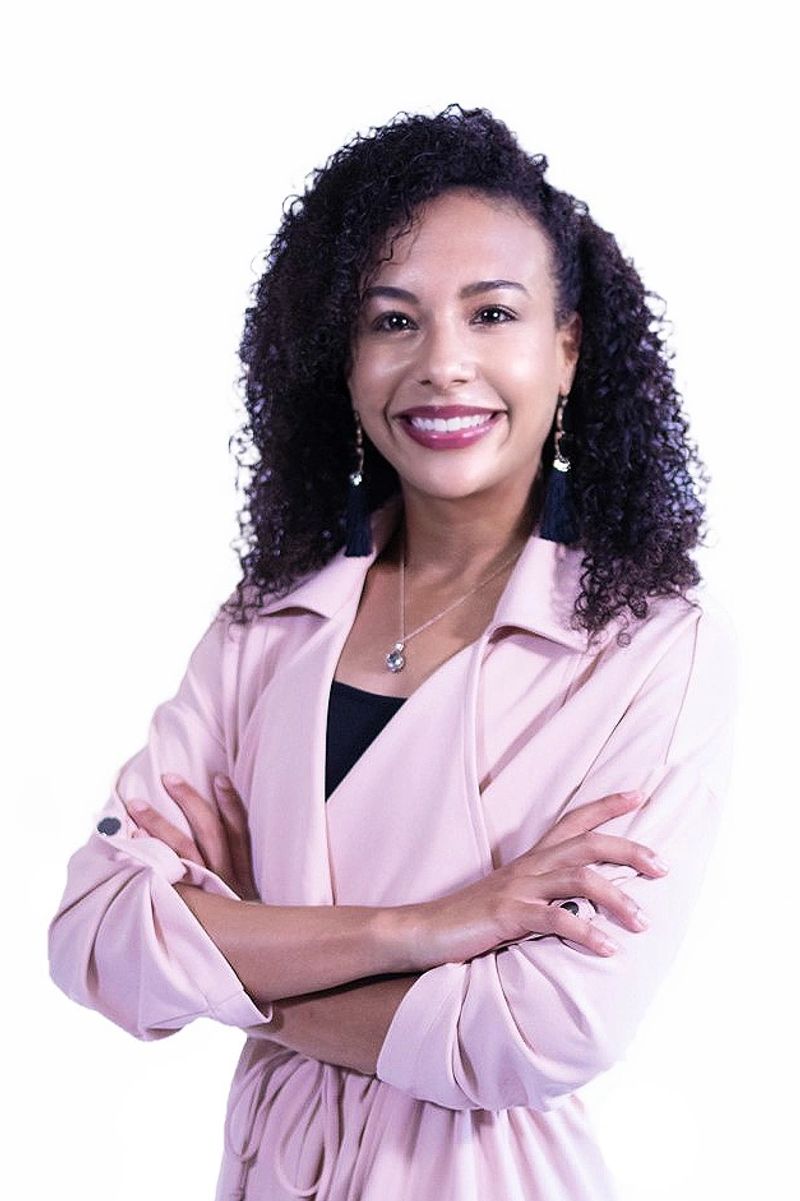 Hello! My name is
Hello! My name is  In support of this effort, Advance CTE recently published
In support of this effort, Advance CTE recently published 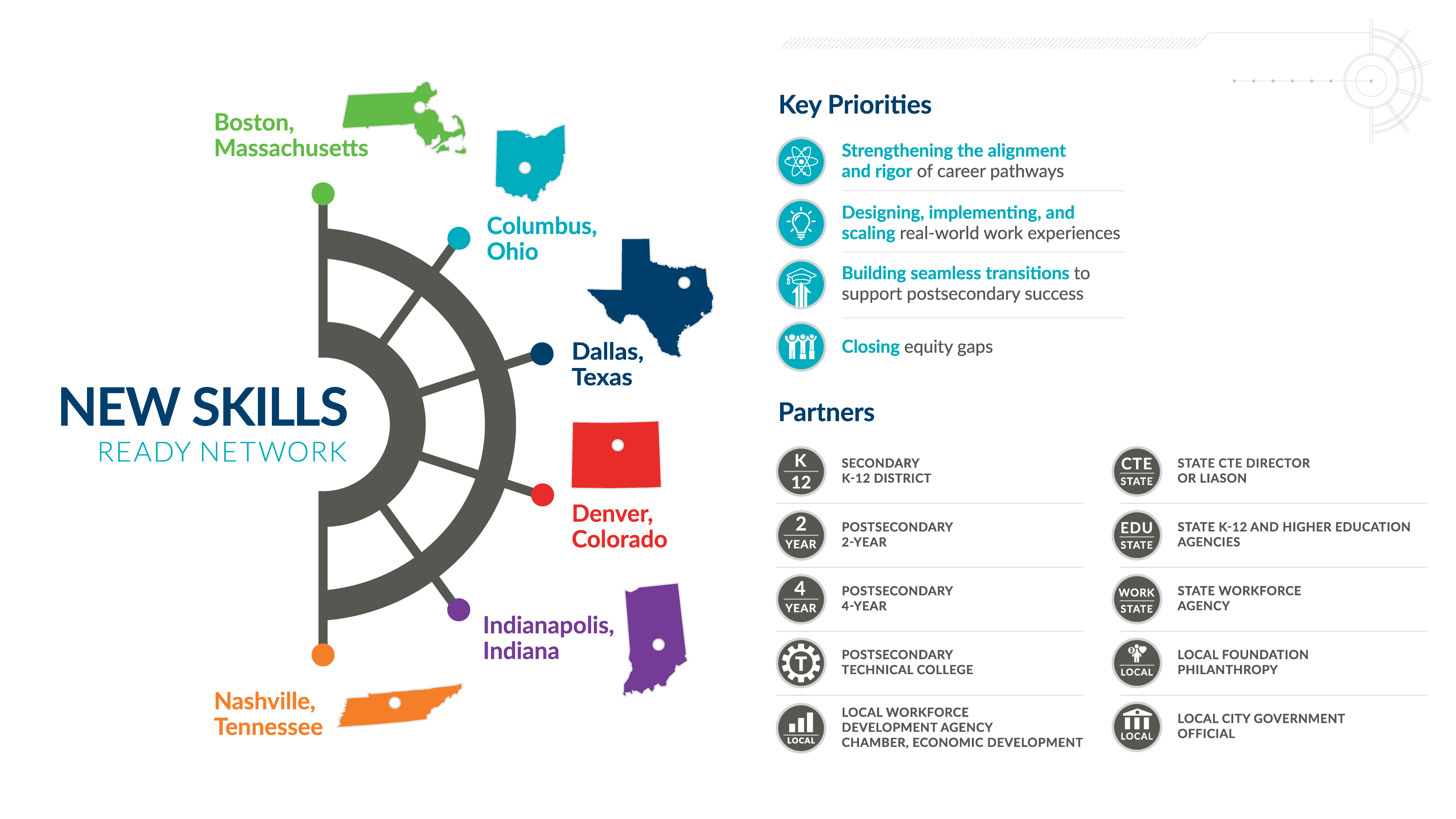
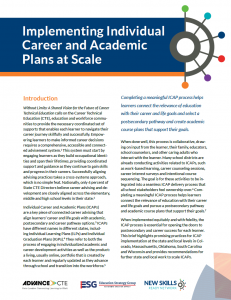
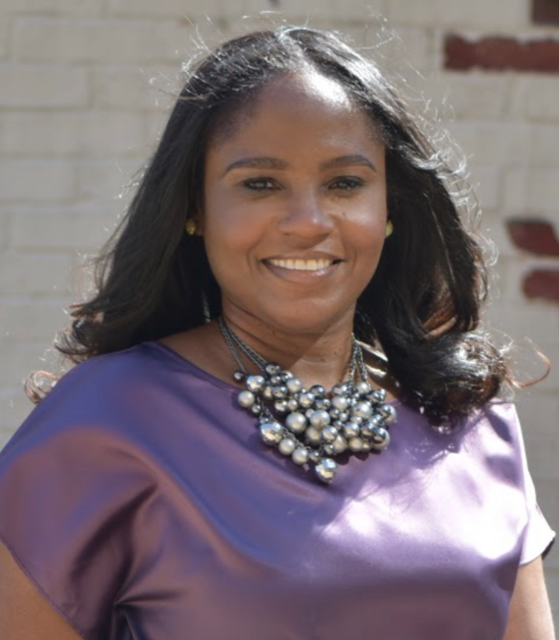 Advance CTE welcomes Dr. Tunisha Hobson as State Policy Manager. Dr. Hobson will support t
Advance CTE welcomes Dr. Tunisha Hobson as State Policy Manager. Dr. Hobson will support t